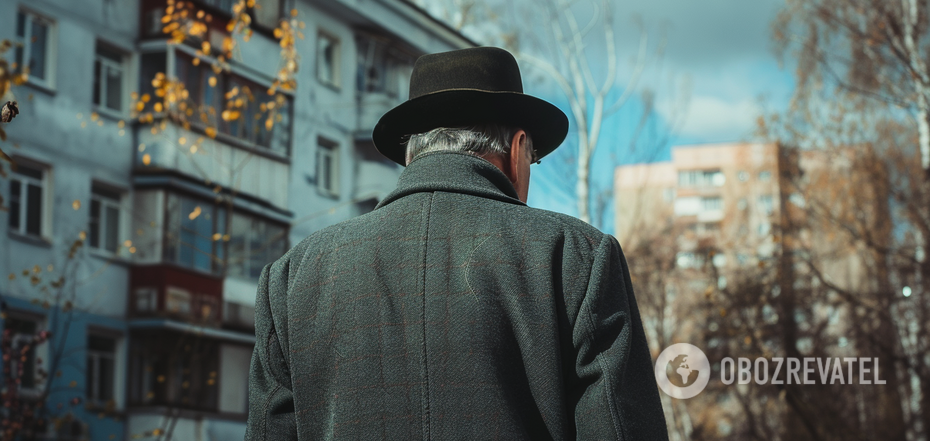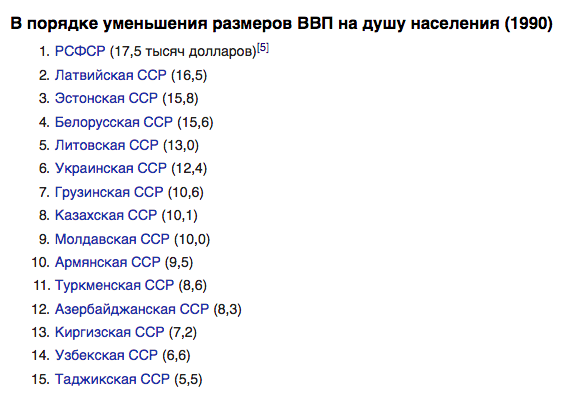News
Who and who really fed whom in the USSR: a blogger gives facts from the past
In its imperial ambitions, Russia, represented by its officials, likes to tell how it fed the other republics during the Soviet era and what benefits it bestowed on them, for which it allegedly still suffers damage. But was it really so?
Maksim Mirovich, a Belarusian blogger specializing in the study of everyday life in the Soviet times, decided to deal with the question. He analyzed the economic data of the USSR and came to some interesting conclusions.
According to Mirovich, in the Soviet Union, all ordinary citizens suffered from poverty equally. And a huge part of their income was taken away by the state, distributing it among the party elite.
How much they earned in the USSR
To understand the level of wealth of the country, you need to look at what income was produced by its inhabitants and how it was distributed among citizens. Communism promoted a "take and divide" policy, whereby all goods would be taken by the state and then distributed equally to the people. According to the UN, the union republics had the following GDP in 1990:
In today's economic system, annual GDP per capita divided by 12 months shows the approximate average wage in a country. The error does not exceed 20%, claims Mirovich. At the same time, the table given by him shows that a Belarusian in 1990 should have had a salary of $1300, which at the "official Soviet dollar rate" should amount to Br2166 per month. If we transfer this amount at the actual exchange rate, it turned out to be even more.
At the same time, the average salary in all republics of the USSR did not exceed the amount of 140-150 rubles. The rest was taken away by the state and distributed among the state apparatus. That is, there was no question of anyone "feeding" anyone.
Budgets of the Union republics
Another argument, which Mirovich undertook to dismantle, points out that the RSFSR "fed" everyone because it had the highest GDP. In 1990 it amounted to 17,500 dollars per capita. While in, for example, Tajikistan it was 5,500 dollars per capita.
"However, this is also incorrect reasoning. The per capita GDP of the Tajik USSR means that the average salary there in 1990 should have been about $458 per month - but Tajiks received on average still the same 140-150 Soviet rubles. In fact, this means only that the Soviet bureaucracy robbed Tajiks in the same way it robbed Russians and Belarusians, just with a little less money," Bloyer explains.
Where the money taken from citizens went
The surplus funds accumulated due to this unfair approach to the economy, according to Mirovich, went to support a huge number of bureaucrats, officials and other representatives of state power.
"Next to relatively successful factories in the country, there were hundreds and thousands of unprofitable, subsidized and simply unnecessary enterprises, whose employees worked according to the principle described by Vencheka Yerofeyev in his immortal poem "Moscow-Petushki" - "We give them a social obligation twice a month - they give us a salary once a month." "The 'work' of the brigade was that the workers were digging up and burying the same cable in the ground, getting paid for it and drinking without a trace," the blogger points out.
Also, the money earned by citizens was generously spent on various military adventures. For example, the invasion of Afghanistan. The USSR also financed militants and terrorists in Eastern, Latin American and African countries. They were declared "freedom fighters" and sent them weapons and other aid to undermine the situation around the world.
"The way the "redistribution of funds" functioned in the USSR can be well visualized by a domestic example. Imagine an entryway with 10 apartments. Out of the whole entryway, only you and your neighbor really work, earning $1500 a month. There is a manager named Shvonder, who takes away your earnings and gives you only $100 per month. The remaining $1400 is spent to support Vasi-alcoholic from the first apartment, the same alcoholic Petya from the third apartment, part of the money is stolen, and $400 is spent every month to support and buy alcoholic beverages to razalupanyam alkashim from the next doorway that fight for the right to pee at the elevator and steal light bulbs" - describes this approach Mirovich.
And what about food
If we take the word "feed" literally, then here too we can draw interesting conclusions, the blogger claims. To do this, he analyzed where different products were produced in the USSR, and where they were consumed as a result.
The lion's share of meat and milk production was in the Baltic republics, Belarus and Ukraine. Before 1917, there were private enterprises producing quality sausages, cheeses and other products. "After the 1917 coup, the Bolsheviks simply took these enterprises away from their rightful owners and started doing something there - this is what happened, for example, with many Belarusian breweries, meat processing plants and butter and cheese factories," shared Mirovich.
At the same time, the local population of these and other republics under the USSR saw almost no milk and meat. "Literally 100 kilometers from Minsk could work meat processing plant - and in the city in the meat departments were empty shelves. I still don't know where all these products went, as judging by the photos - the same empty shelves were in other parts of the USSR. Apparently, all the products went for "special rations" for the nomenclature," the blogger suggests.
"So it turns out that the whole country worked for the Soviet nomenklatura - feeding them, shoeing and dressing them, and even sponsoring their political adventures," Mirovych summarized his small study.
Subscribe to the channels OBOZ.UA in Telegram and Viber to keep abreast of the latest events.




























